
- Good Stuff -
- 6mins -
- 653 views
For One Year, Rob Greenfield 100% Lived On Only What He Grew and Foraged For Himself
Literally every morsel that passed Rob Greenfield’s lips in the last year, he either grew in his gardens or he went out into nature and harvested. Find out how he did it, why he did it, how he feels about it, and what he hopes to achieve from it.
Rob Greenfield is a dude making a difference
For one year Rob Greenfield grew and foraged all his own food. No grocery stores, no restaurants, no going to a bar for a drink, not even medicines from the pharmacy. Literally everything that passed Rob Greenfield’s lips in the last year was something he either grew in his gardens or he went out into nature and harvested. Rob hopes hisjourney will inspire others to live with more happiness, health and sustainability.
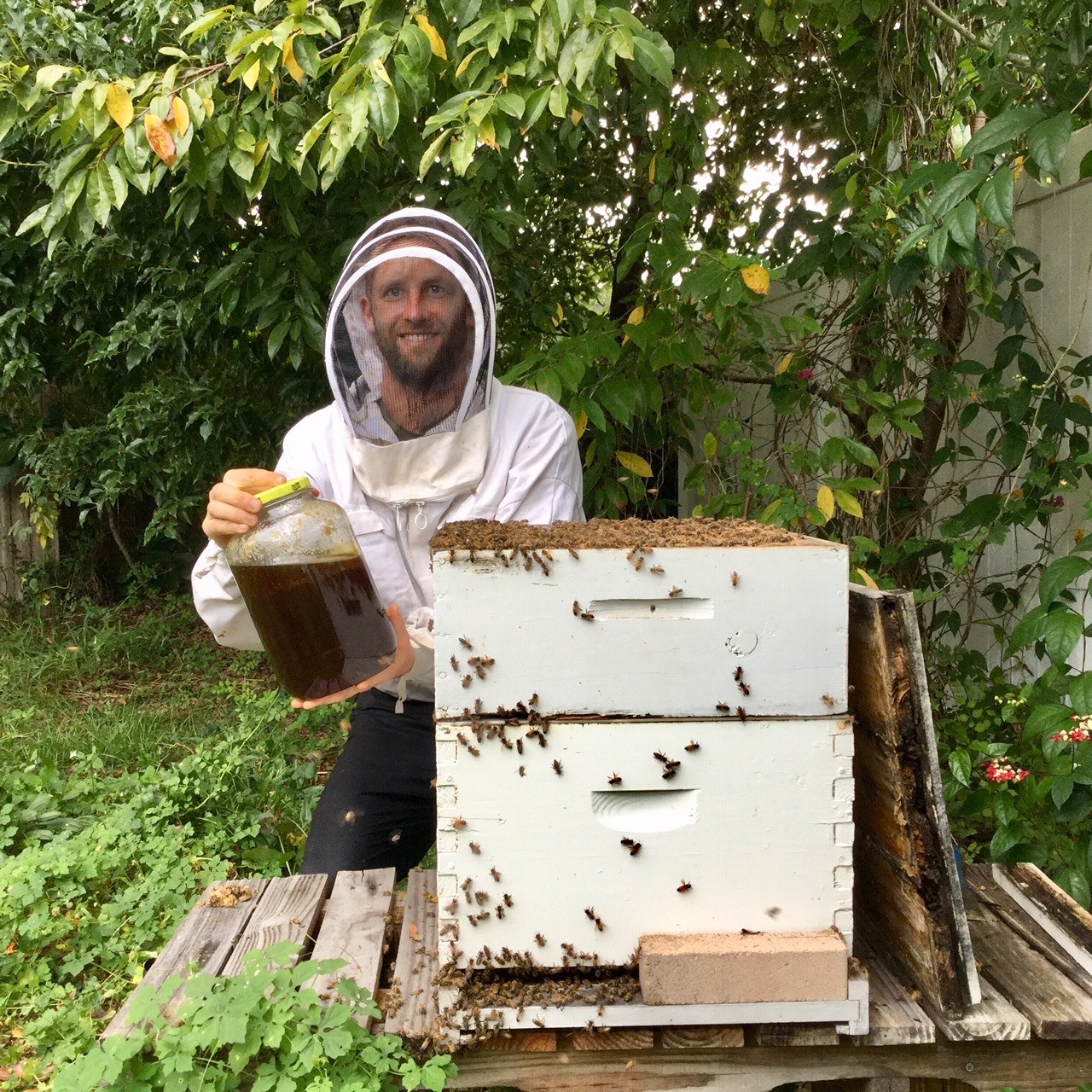
Salt from the sea, honey from his own bees, herbs from the garden. “Today is day 357 of growing and foraging 100% of my food and I’ve got a problem! TOO MUCH HONEY!” Source: Facebook/RobGreenfield
Rob wanted to inspire people to question their food
For some time, Rob Greenfield had been wrestling with the question: is it possible to step away from our globalised industrialised food system, from all the destruction that it causes to the world, to other species, to other people, and step away from that and actually produce all of his own food? So he decided to find out if it was possible.
Well, one year later and Rob is happy to announce that he still here and he is healthier than when he started, and happier that he did it.
Another element of the experiment is that Rob wanted to inspire people to question their food. Where does it come from? How does it get to them? What is the impact it has on the Earth, other species and ultimately themselves?
And if they question it and they don’t like the answers that they find, then Rob hopes they’ll change those answers. That they’ll change the way they are eating to be in a way that is more beneficial to the Earth, to our communities and to ourselves.
When Rob arrived in Orlando, he had no land or gardens of his own, so he had to walk around the community talking to people and ask if they would be interested in him turning their front lawn into a garden. Over a period of six months Rob made six small gardens around the neighbourhood. The deal was that the owners could eat as much food as they wanted from the garden. Now the project is over, however all the gardens are still producing more food.
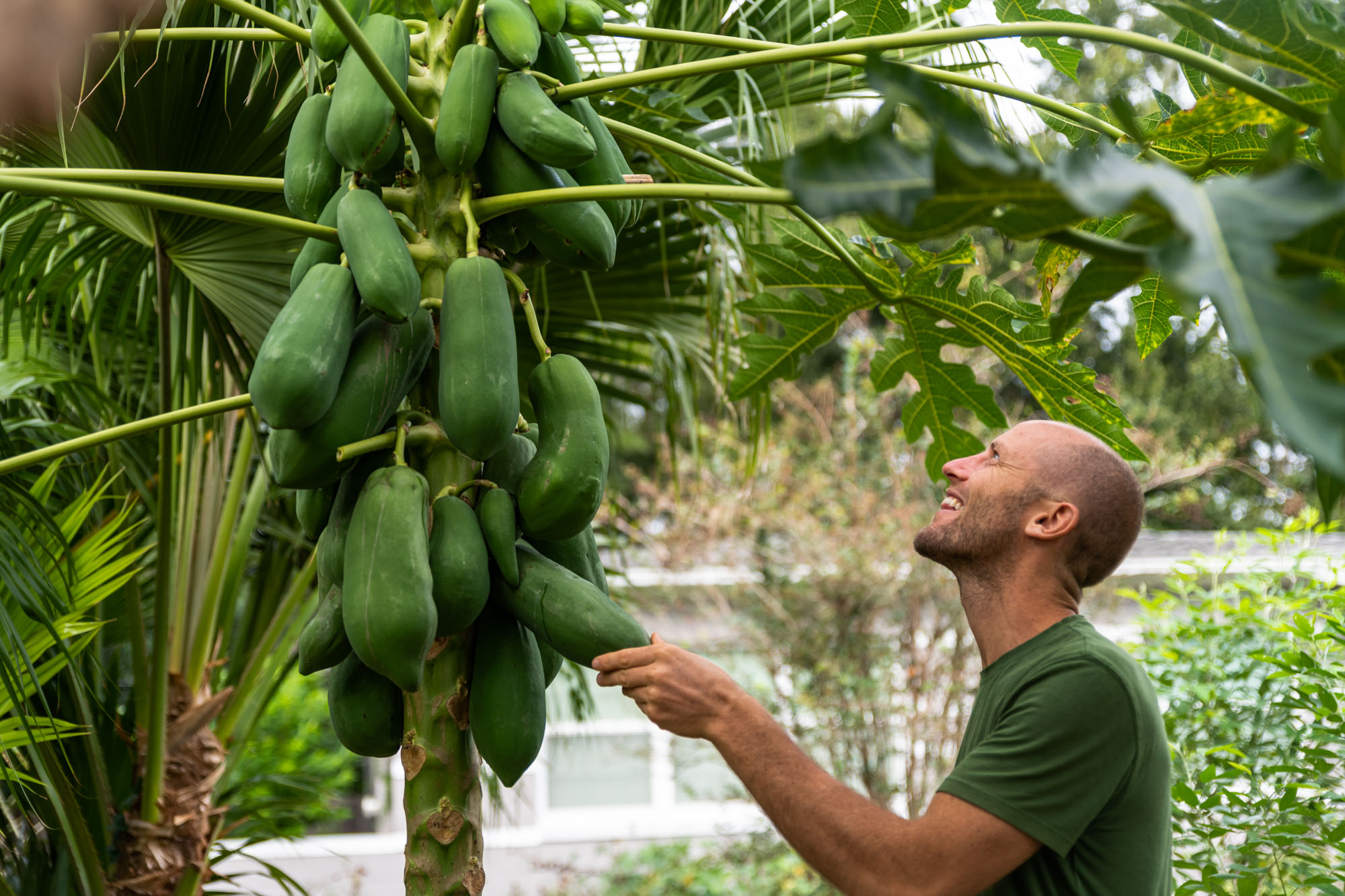
Since before this year began, the most common question I have received is, ‘What will be the first thing you will eat when the year is over?’ — “I have thought about this a lot. The answer is that I just don’t know. To be honest I have not been craving any foods over the last couple months that I haven’t been able to grow or forage. I have grown over 100 different foods and foraged over 200. That’s some real diversity there! I feel comfortable and complete. I feel healthy and happy. Because of this I am not finding myself with many cravings. I did earlier on in the year, but I have found my flow in this grand experiment.” Source: Facebook/RobGreenfield
“I think our society’s advanced enough where we can take care of each other.” — Rob Greenfield
Greenfield put a lot of thought and effort into this 12 month project. Prior to the year, Rob began growing and learning how to forage for 10 months. He looked into everything; where he’d get his calories, his fats, his protein, his nutrients.
Rob grew some 100 different foods in his garden and foraged a further 200+ different foods: a variety of over 300 foods, which is extremely diverse by anybody‘s standards. With salt from the ocean, coconuts from the beach, caught fish, and a variety of herbs from his garden, Rob’s diet for the 12-months was balanced, healthy, fresh, seasonal, tasty, plastic-free, pesticide-free, and above all, eye-opening.
Rob will be doing a lot of travelling over the next year so he won’t have a garden, but says everywhere he goes he will still seek out locally produced food. Of course Rob will have to buy food, but it’s about buying unpackaged foods that don’t leave trash behind for future generations.
“What I’m driven by… Is living a life where I can wake up and feel good about my life, and I can go to bed and feel good about my life, and where I can hopefully die many years from now and know that my life was honest. It was genuine. I knew my actions and how they affected the world. I want to live a life of truth. But beyond that, I want to spread the truth. I want other people to wake up and I want him to live lives of truth as well.
And that’s so that we’re living fairly, you know, in a world where we have so much. I think it makes sense for everybody to have enough, not have food systems where in one country we are wasting half of our food and another place people are literally starving today.
I think our society’s advanced enough where we can take care of each other. Let’s take care of each other. Let’s take care of our earth.”
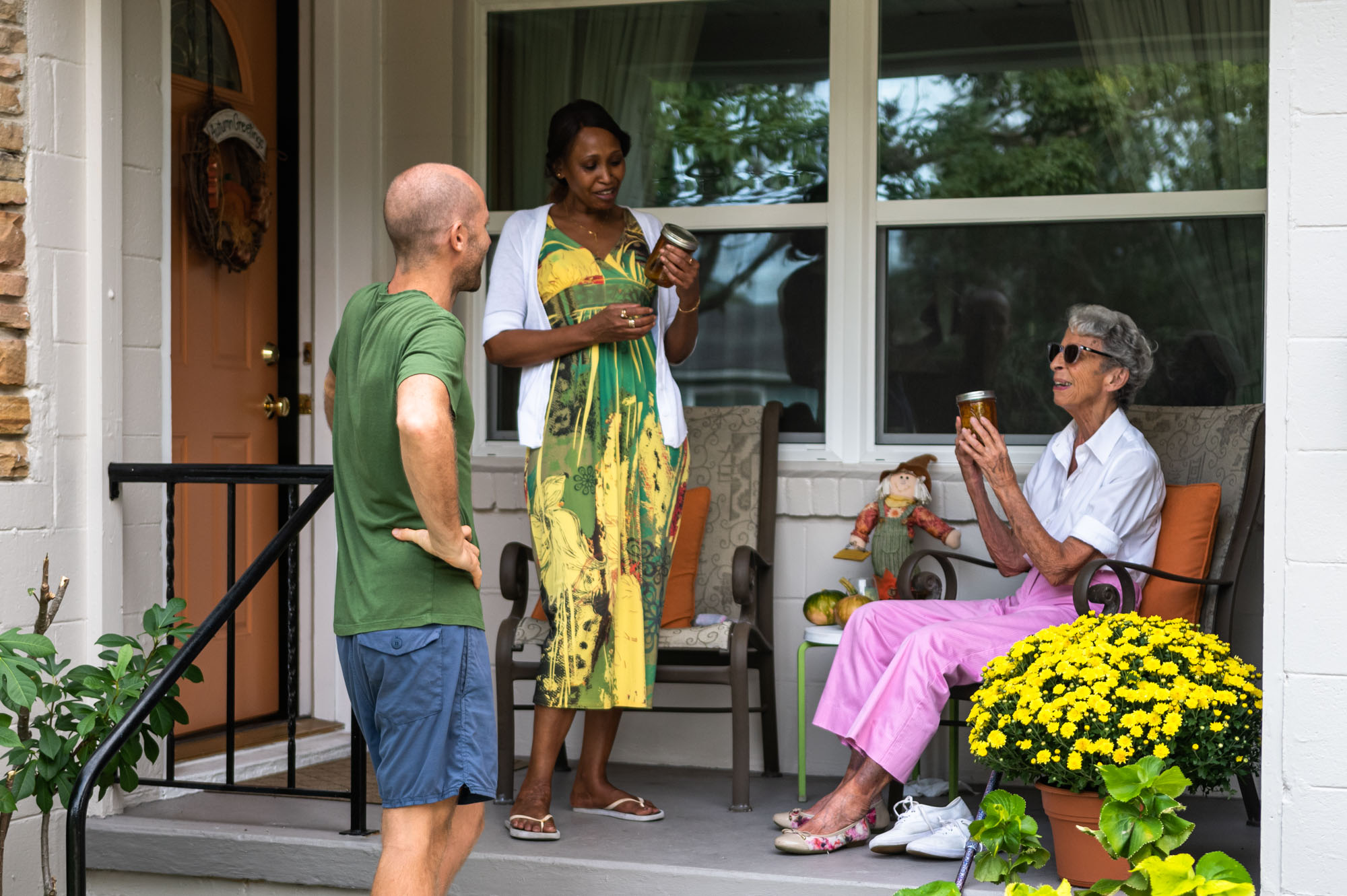
When you have abundance… You share it with neighbours! “To many, this might seem altruistic,” says Rob. “It might seem generous in the world we live in today. Perhaps even selfless… But I don’t consider this act to be any of those things. Because without community, their can be no me. I am no island. I dependent on my community today to meet almost every single one of my needs. Money has the ability to make it seem as if we don’t need each other, but that is a delusion. We need each other. I need a thriving community for me to thrive.” Source: Facebook/RobGreenfield
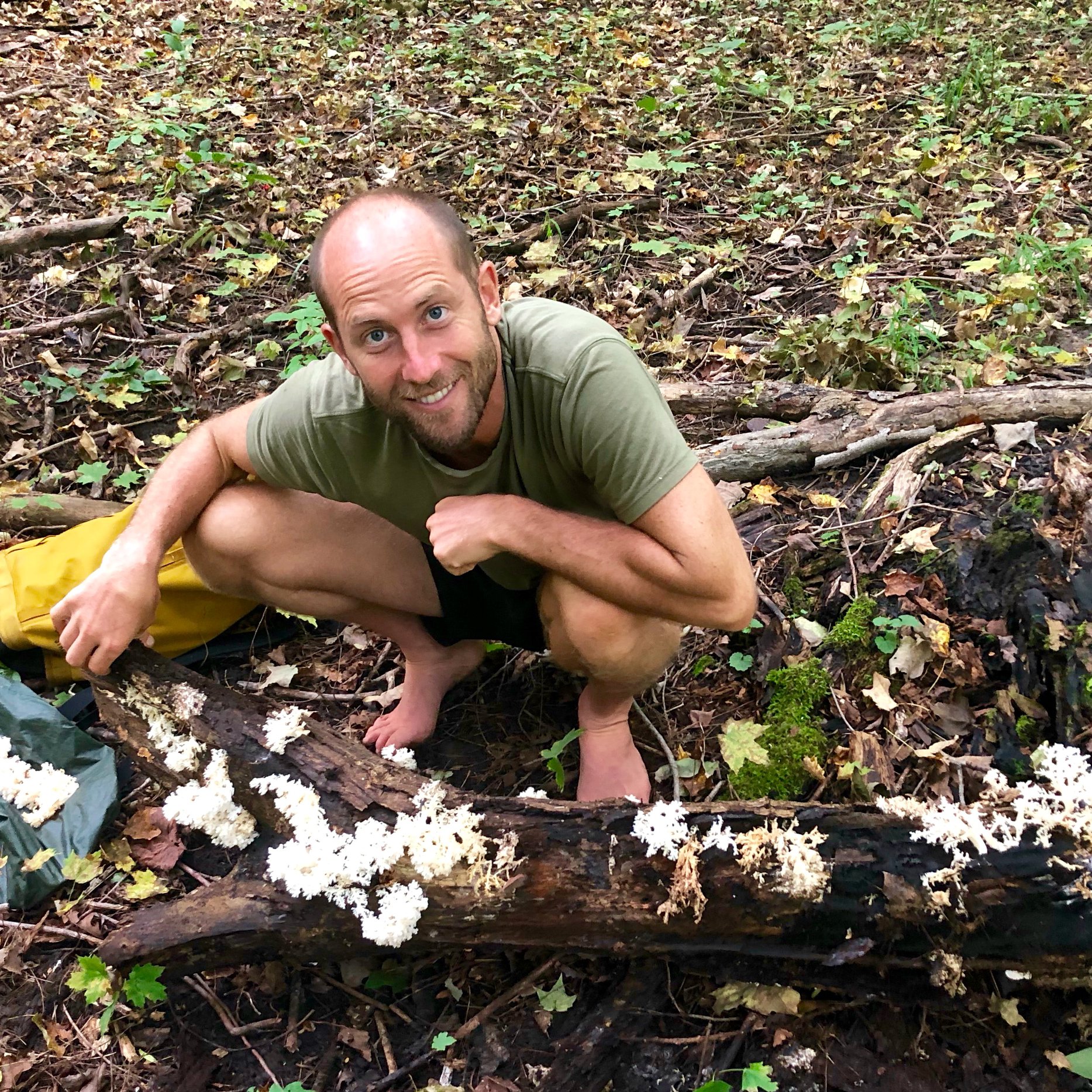
Pictured here is comb tooth mushroom that I found on a hike in Wisconsin on Sunday. I also found my first chicken of the woods and pheasant’s tail mushroom. One of the main purpose’s of this project was to deeply immerse in food and gain a more extensive connection to my source of life. It’s safe to say that’s been a success so far. Today, I would feel confident going for a walk almost anywhere in the United States and being able to forage a delicious and nutritious meal. I couldn’t have said that just a year ago! Source: Facebook/RobGreenfield
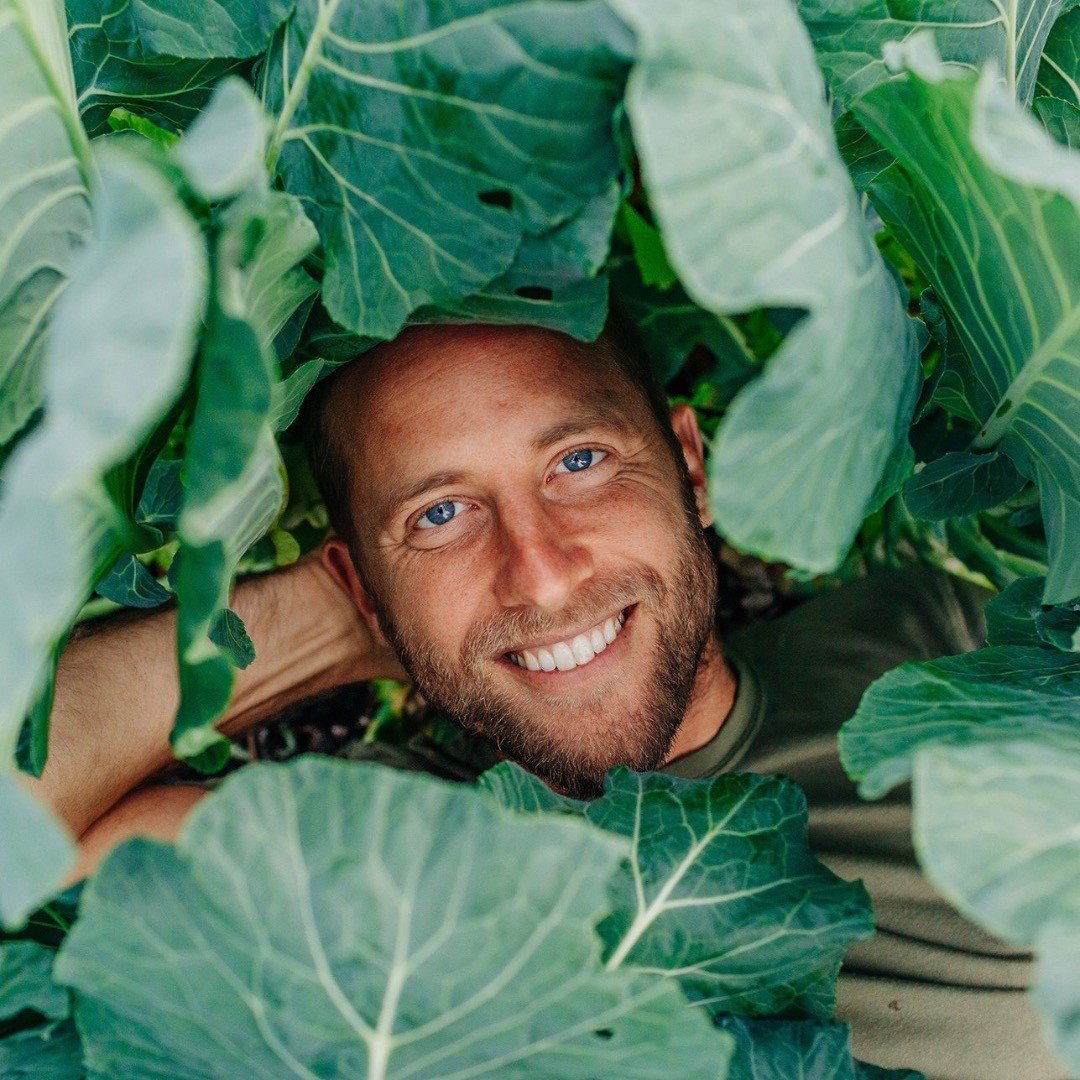
A message from Rob Greenfield
Hi everyone!
It’s Rob from the video!
I hope my journey has inspired you to live with more happiness, health and sustainability! Nobody has to do 100% like I did, but we can all do our part to improve our communities.
If this video inspired you please join me on my YouTube channel and watch the full video HERE. Sending love to you all!
Follow Rob Greenfield on Facebook, Instagram, and YouTube. If you’re interested in a list of all the foods Rob ate, click HERE.

